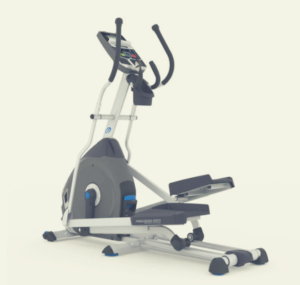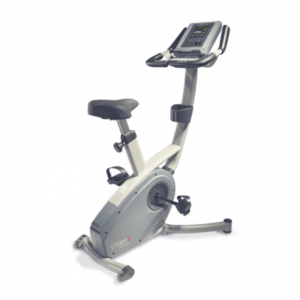If you are a long-distance cycler, runner, or any other type of endurance athlete, chances are, you’ve experienced the dreaded sudden drop in energy, sometimes also accompanied by weak legs and dizziness, known as bonking or hitting the wall, which made you stop in the middle of your activity and want to sit down or lie down to rest.
When this occurs, it can be quite frustrating, not to mention downright scary, depending on the severity.
However, in order to recover from bonking, you must rehydrate and refuel as soon as possible.
Why Does my Body Bonk During Long-Distance Sports?
Bonking symptoms vary among people and can occur on different levels before finally worsening, in which case, you may experience more severe symptoms, including shaking, loss of focus, heart palpitations, and hunger in addition to or in place of the usual weakness, tiredness, dizziness, and cold flashes initially brought on by the condition.
According to experts, there are two reasons your body experiences a bonk: not enough fuel and low hydration.
Not Enough Fuel
Most athletes know to hydrate before their long-distance sport, but they don’t always consume enough carbohydrates to fuel their body for the activity.
Failing to do so can cause a drop in the body’s glycogen stores, which can cause you to feel lightheaded or spaced out. You may also experience low peripheral vision, and images may appear blurry.
Glycogen is simply a form of glucose that the muscles use as a main energy source.
Hence, when glycogen levels in the body become depleted during physical activity, it means less energy to fuel the muscles, thus causing them to become fatigued, after which time you may find it difficult to keep going.
Low Hydration
Another cause of hitting the wall is low hydration, which results in a loss of body water that can also cause your energy level to drop.
It is also often accompanied by an elevated heart rate and weak, heavy legs. It can also lead to heatstroke and more if not addressed right away.
Low hydration, also known as dehydration, occurs when your body uses more water than it has available, such as through profuse sweating during endurance sports, which helps keep your body from overheating.
Therefore, to keep the body from becoming dehydrated, it will signal when it is thirsty, during which time it is important to consume enough fluids to prevent issues.
It is also not uncommon to experience a psychological bonk, which can cause mental low points throughout your long-distance sport either in addition to physical bonking or on its own and also make you lose endurance.
How to Recover From a Bonk
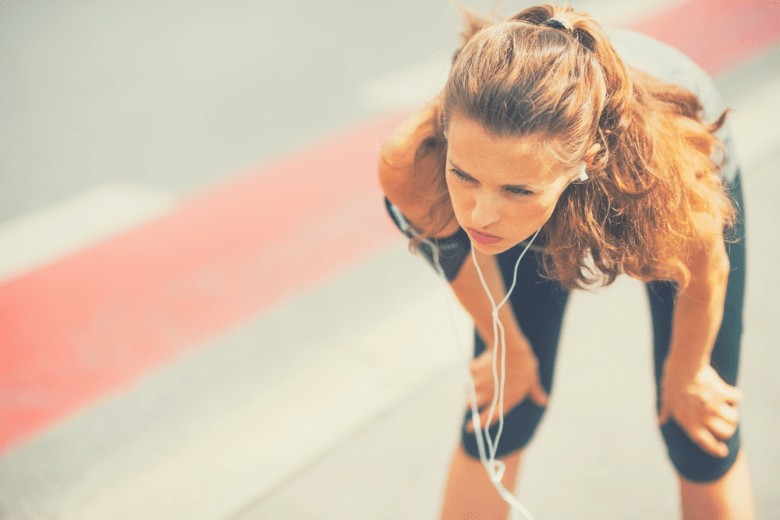
Eat As Soon As Possible
If you feel lightheaded, spacey, or you suffer blurred vision during your sport, it most likely means your body is low on fuel, and you need to consume food to restore it to normal, even if you feel sick or have a lack of appetite, which can also sometimes occur after a bonk.
Ideally, it is recommended you eat a combination of simple carbohydrates and protein, such as a peanut butter sandwich.
However, if these food sources are unavailable, simply eating anything high in carbs or sugar, such as an energy bar, sports drink, soda, or cookies, etc., will also help quickly restore your glycogen levels.
Or you could also take a glucose tablet to help provide immediate relief. Just be sure to ingest something that contains carbohydrates to help boost your energy stores.
Replenish Your Body’s Fluids
If at any time during your sport, your legs begin to feel heavy and weak, you are losing power, or you just plain can’t seem to keep your pace, it means your heart rate is up because you are low on fluids, in which case you need to drink more to replenish your body’s hydration level.
To help quickly recoup from dehydration, experts recommend drinking water with a dash of salt or an electrolyte beverage to help restore your mineral balance, which increases your body’s fluids as well as also helps improves nerve and muscle function.
Or you could also consume a drink that contains protein and fast-hitting sugar, such as fruit juice or chocolate milk, which can also help you recover quicker after a bonk.
However, avoid drinking alcoholic beverages following a bonk because it causes frequent urination, which further promotes a loss of body fluids, thus increasing dehydration. It also interferes with muscle repair, which can extend the time it takes for you to recover.
Allow Your Body Sufficient Time to Rest
After properly refueling and hydrating from hitting the wall, allow your body time to absorb the nutrition and fluids so your muscles can regain strength, and your brain’s function can return to normal, which a nice, long nap can help you do.
Sleep also helps give the body a break, so there’s less stress on your physique overall, which also helps improve its condition. It also helps you awake more energized because there is a decreased need for calories as you sleep, so you recuperate faster.
Therefore, after a bonk, if possible, restrain from all further activity for the rest of the day and take sufficient time to relax.
Some Ways to Help Stave off Bonking
Prepare Yourself Mentally
As stated earlier, maintaining a positive mental state is half the battle during long-distance activities, which can also make a difference between you successfully completing your sport or not.
Therefore, prior to your event, take time to prepare yourself mentally for the challenge ahead, which can be done in various ways, including repeating mantras while focusing on the end goal.
You should also keep in mind your reason for participating in the sport, which will also provide you with a mental picture to help keep you motivated.
During your event, experts also recommend focusing on your breath, making sure you inhale and exhale at a rhythmic rate between strides.
It might also help to chat with other athletes at your pace to help keep each other pushing through.
Get a Good Night’s Sleep the Night Before
Adequate sleep not is not only good to help your body recover from hitting the wall, but it also helps balance your hormone and stress levels the night before, so you awake more refreshed and in a positive mood.
On the other hand, sleep deprivation can make you feel tired quicker, which can cause you to fall short the following day.
As a general rule, experts suggest getting at least 8 to 10 hours of sleep the night before your activity, and you should also strive for quality sleep in the weeks leading up to your event for the best results.
Refuel/Rehydrate Before, Throughout, And After Your Activity
Experts recommend athletes eat a diet that is at least 40% to 65% carbohydrates every day leading up to the event to help prevent undereating and maintain glycogen stores.
You should also consume a pre-sport meal of no more than 200 to 300 calories to help fuel your activity.
If your event is longer than 60 minutes, it is suggested you fuel with low to moderate glycemic carbohydrates, such as bananas, yogurt, oatmeal, or apples because they enter the bloodstream slowly, which provides sustained energy.
Your pre-workout meal should also be consumed at least an hour before exercise to give it time to digest and be burned for fuel throughout your sport.
However, because your glycogen stores will only last about 90 to 120 minutes, it is also important to refuel your body during your activity to help keep your energy up.
Endurance sports can burn up to 250 calories per hour; therefore, try to refuel your body with 100 to 200 calories an hour to maintain your stamina and prevent bonking.
However, don’t wolf down your snack. Instead, experts recommend nibbling your food at regular intervals throughout your activity to help prevent you from getting sick.
If you are exercising longer than an hour, they also suggest sipping a beverage with electrolytes along with your food to also help keep you hydrated.
You should also start hydrating at least two days before the event, as well as also drink at least 8 ounces of sports drink or water at least two hours prior to your sport, so your body is properly hydrated by the time your event begins.
Recognize the Early Signs of Bonking
Recognizing the early signs of bonking helps you address it immediately, so you can still finish your event.
Some early signs and symptoms of a bonk include feeling slow, weak, or heavy, after which time if you continue to push on, you may also begin to experience sweating, shaky muscles, and a lack of coordination and physical effort before finally developing more severe symptoms, such as lightheadedness, dizziness, distorted vision, and disorientation.
Some people also experience nervousness, anxiety, and irritability.
Likewise, if you have experienced bonking before, try focusing on when you started feeling fatigued and why, which will help you plan a successful nutrition and hydration plan to help prevent it from happening again.
Pace Yourself
Because you typically burn more glycogen than you can replace during endurance sports, you should also pace yourself to avoid depleting your stores too quickly.
As a general rule, experts suggest when participating in events that last under 1 hour, you can typically go hard without bonking.
However, for events that last longer than 3 to 5 hours, they recommend keeping a moderate pace to help reserve glycogen.
This way, your body burns fewer carbohydrates per hour and, instead, burns more fat, thus creating the perfect fat to carbohydrate burn ratio, which helps prevent hitting the wall.
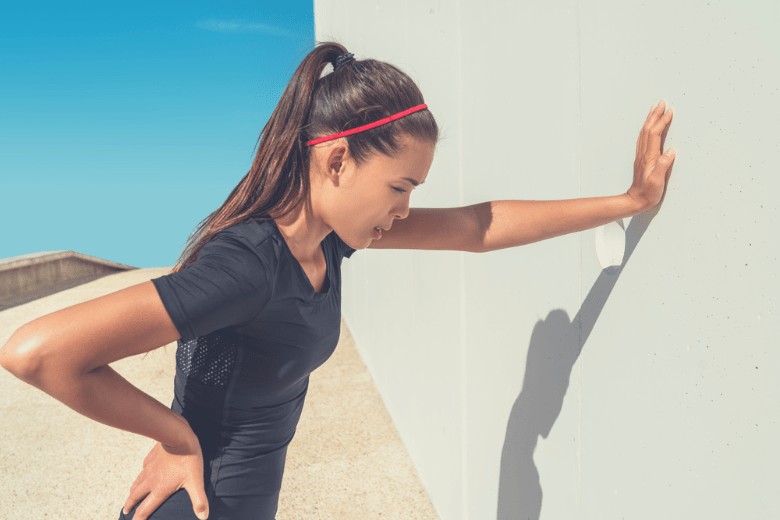
Restore Your Glycogen Levels Post-Activity
Your muscles also utilize glycogen to help repair themselves after long-distance exercise; however, if your glycogen levels are depleted post-workout, they will simply feed on themselves for fuel, which can cause you to feel weak after your sport and, over time, even cause your muscles to shrink.
Therefore, it is also important to replenish your glycogen stores after your activity to help boost recovery and prevent muscle loss. It also helps ensure you can resume your sport the next day.
To do so, experts recommend that you try to eat within 15 minutes after your sport because this is when enzymes that are responsible for making glycogen are most active, so they will quickly replace depleted stores.
In general, you should aim for a 3:1 to 4:1 ratio of carbohydrates and protein, which also helps with muscle repair.
However, any foods or drinks with a mix of carbohydrates, protein, and fat, such as chocolate milk, is also often touted as a good post-workout treat.
They recommend you also eat again within 2 hours after your initial post-workout meal to continue to replenish glycogen levels in the body and enhance recovery.
Recommended Carb Powders
| EFX Sports Karbolyn Fuel | Performance Lab® SPORT Carb | Vitargo Carbohydrate Powder |
 |
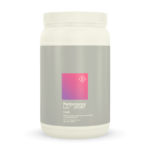 |
 |
| What we like about EFX Sports Karbolyn Fuel is that it is a food-derived carbohydrate drink and that they manufacture their own products – it is 100% banned-substance free. | Performance Lab® SPORT Carb is a premium carb powder that provides muscle energy fast and for an extend amount of time. Perfect for endurance athletes or very strenuous workout sessions. | What we like the most about Vitargo Carbohydrate Powder is that it comes in many different flavors – giving you options to choose your favorite. |
 |
 |
 |
Final Thoughts
When it comes down to it, if you learn what causes s bonk, as well as also use your own experience with it to help stave it off in the future, you will never have to face the dreaded bonk or bonk again.
Of course, this will take some experimenting with your body’s carbohydrate and hydration intake to find the perfect formulation for you; however, it beats hitting the wall unexpectedly during your activity, which can cause you to have to quit.
And if you do begin to bonk in the middle of your sport, remember, the earlier you address it, the better to avoid worsening the condition, and perhaps you can even keep on going; however, experts warn you should never push yourself past extreme symptoms because it can cause convulsions or a coma.

